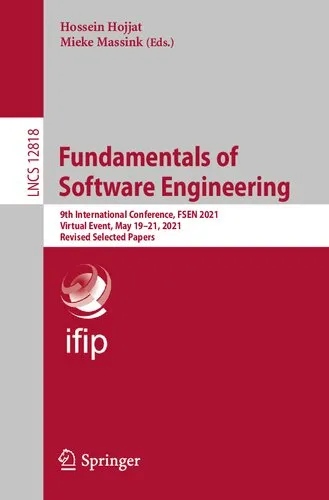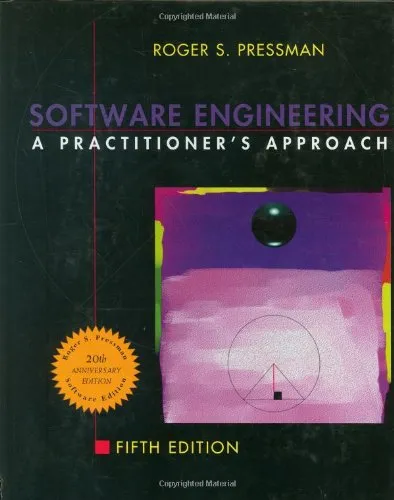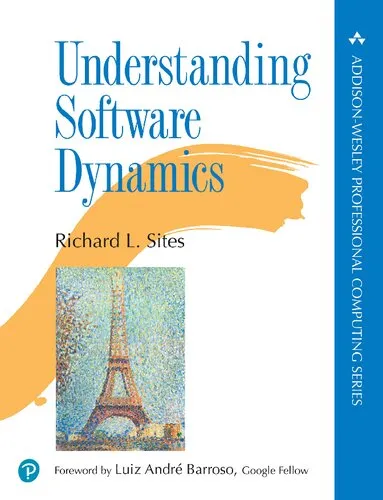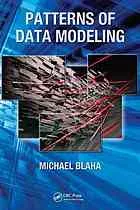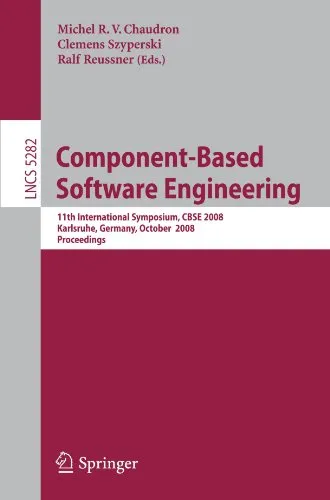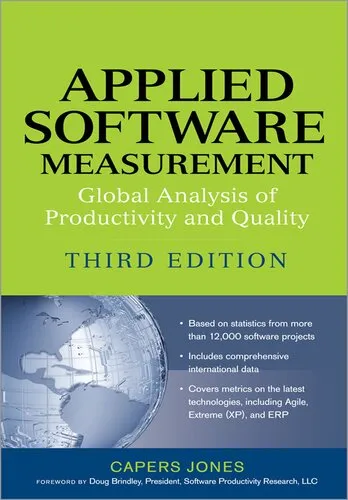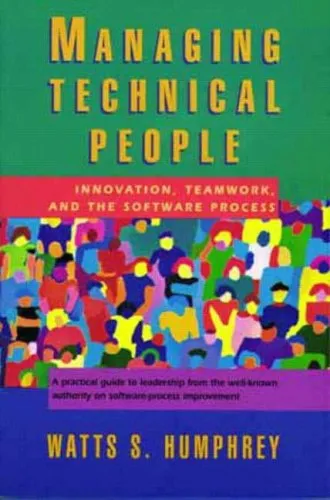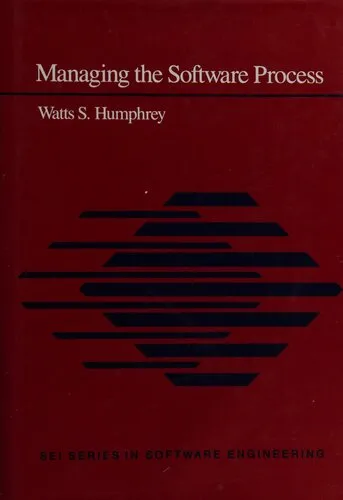Fundamentals of Software Engineering: 9th International Conference, FSEN 2021, Virtual Event, May 19–21, 2021, Revised Selected Papers (Programming and Software Engineering)
4.0
بر اساس نظر کاربران

شما میتونید سوالاتتون در باره کتاب رو از هوش مصنوعیش بعد از ورود بپرسید
هر دانلود یا پرسش از هوش مصنوعی 2 امتیاز لازم دارد، برای بدست آوردن امتیاز رایگان، به صفحه ی راهنمای امتیازات سر بزنید و یک سری کار ارزشمند انجام بدینکتاب های مرتبط:
Introduction
Welcome to Fundamentals of Software Engineering, a comprehensive collection of scholarly contributions and revised selected papers presented during the 9th International Conference, FSEN 2021. This virtual event, held from May 19 to May 21, 2021, brought together researchers, practitioners, and thought leaders from across the globe to discuss the latest advancements and challenges in programming and software engineering.
The landscape of software engineering continues to evolve rapidly, driven by emerging technologies, complex system requirements, and the ever-increasing demand for robust, scalable, and maintainable software solutions. As the conference focused on fostering collaboration and innovation in this space, this book serves as an essential resource for deepening understanding, enhancing practical knowledge, and exploring the forefront of academic and industrial research in software systems.
This book provides insights into a diverse range of topics, including formal methods, testing, validation, verification, distributed systems, and security. The research papers included here have undergone a rigorous review process, ensuring their quality and relevance in addressing foundational and cutting-edge issues in software engineering.
Detailed Summary of the Book
The book consists of carefully selected contributions that encompass theoretical foundations, empirical findings, and practical case studies in software engineering. Readers will find research that explores innovative approaches to improve software quality, development methodologies, and automation techniques.
Among the highlights are studies on formal methods that leverage advanced mathematical models to ensure the reliability and correctness of software systems. These methods provide robust frameworks for designing, verifying, and validating critical systems. The book also examines testing and quality assurance techniques, showcasing scalable tools and processes for identifying errors and inefficiencies in diverse environments.
Distributed systems, a key focus area for modern applications, are well-covered in this volume. Researchers present innovative synchronization mechanisms, fault-tolerant strategies, and performance optimization techniques for distributed architectures. Additionally, significant attention is paid to the growing field of cybersecurity, outlining methodologies to safeguard software against malicious threats and data breaches.
With contributions from leading academics, practitioners, and industry experts, this book reflects a nuanced understanding of software engineering's challenges and opportunities and seeks to inspire further progress through actionable insights.
Key Takeaways
- Understanding the role of formal methods in achieving software correctness and reliability.
- Insights into state-of-the-art testing and quality assurance techniques for software systems.
- In-depth exploration of distributed systems, their challenges, and innovative solutions.
- Strategies and tools for enhancing security in software applications.
- Practical case studies, empirical results, and theoretical advancements in the field.
- The importance of interdisciplinary collaboration for innovation in software engineering.
Famous Quotes from the Book
“Software engineering is not just about writing code; it’s about solving real-world problems effectively, efficiently, and ethically through systematic processes and methodologies.”
“The complexity of modern distributed systems requires us to think beyond traditional paradigms, embracing innovation while maintaining rigor in design and validation.”
“Formal methods might not be the panacea for all software issues, but they are undoubtedly an essential tool in the engineer’s toolkit, providing trust in our most critical systems.”
Why This Book Matters
The importance of this book lies in its multidisciplinary approach to tackling the challenges of modern software engineering. In an era where software underpins almost every aspect of our lives—healthcare systems, financial services, education, industrial automation, and beyond—the need for reliable and secure software has never been more critical.
By consolidating the latest research and practical findings, this book empowers both novice and seasoned software engineers to improve their craft. It goes beyond theoretical concepts, offering actionable strategies for real-world problems. The inclusion of diverse topics ensures that the book caters to a wide audience, from academic researchers to industry practitioners.
Furthermore, the collaborative nature of the book—featuring authors from varied backgrounds and regions—illustrates the global effort to push the boundaries of what’s possible in software engineering. As the content is distilled from a prestigious international conference, readers can trust its credibility and relevance to current and emerging trends.
In summary, this book is not just a record of FSEN 2021; it is a testament to the power of innovation, collaboration, and rigorous research in shaping the future of software systems for the betterment of society.
دانلود رایگان مستقیم
شما میتونید سوالاتتون در باره کتاب رو از هوش مصنوعیش بعد از ورود بپرسید
دسترسی به کتابها از طریق پلتفرمهای قانونی و کتابخانههای عمومی نه تنها از حقوق نویسندگان و ناشران حمایت میکند، بلکه به پایداری فرهنگ کتابخوانی نیز کمک میرساند. پیش از دانلود، لحظهای به بررسی این گزینهها فکر کنید.
این کتاب رو در پلتفرم های دیگه ببینید
WorldCat به شما کمک میکنه تا کتاب ها رو در کتابخانه های سراسر دنیا پیدا کنید
امتیازها، نظرات تخصصی و صحبت ها درباره کتاب را در Goodreads ببینید
کتابهای کمیاب یا دست دوم را در AbeBooks پیدا کنید و بخرید
1363
بازدید4.0
امتیاز0
نظر98%
رضایتنظرات:
4.0
بر اساس 0 نظر کاربران
Questions & Answers
Ask questions about this book or help others by answering
No questions yet. Be the first to ask!
